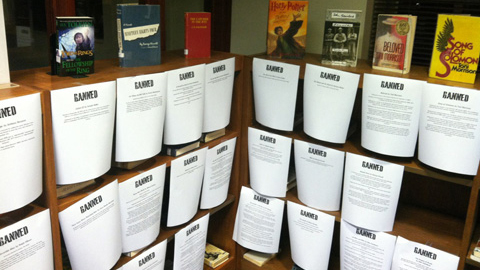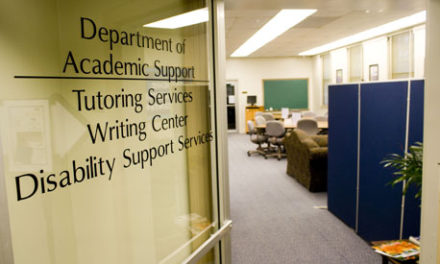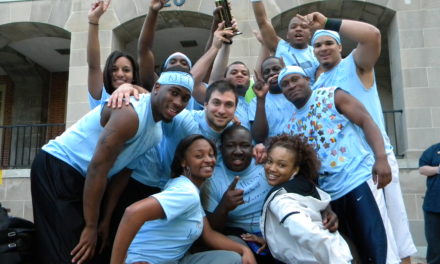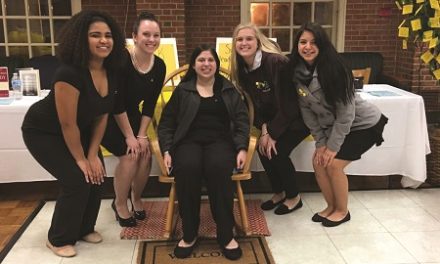By: Melissa Boyd (Whetstone Staff Writer)
Junior Celeste Montgomery said she was appalled at the long list of banned and challenged books that the library has showcased for students to see.
“I think books should never be banned,†she said. “Maybe rated, but never banned.â€
Banned Books Week, from Sept. 24 – Oct. 6, was created 30 years ago to inform people of the frequently “challenged†books across the nation. The American Library Association (ALA) initiated the week to encourage librarians and educators to inform students of their right to read.
The challenged books list holds more than 100 books. In 2011, according to the ALA, the 10 most frequently challenged books in America include: ttyl, The Color of Earth, The Hunger Games trilogy, My Mom’s Having a Baby! A kid’s month-by-month guide to Pregnancy, The Absolutely True Diary of a Part-Time Indian, Alice (series), Brave New World, What My Mother Doesn’t Know, Gossip Girl (series), and To Kill a Mockingbird.
The ALA reports that common reasons for a book to be banned or challenged are language (cursing or racially insensitive slurs), religious views, nudity or sexually-explicit material and drug usage.
“For children, if there’s a valid reason for a teacher to teach a book, they should be able to do it,†Montgomery said. “Don’t take the liberty too extreme. You wouldn’t have sex-filled books for children, but at the same time, you should be free to read the books you want to read.â€
She also said books help enlighten their readers and nobody should have the power to decide what books are allowed to be used in a classroom.
“Books help us dive into different perceptions,†she said, “which, as a society, we should be able to do. Who should be able to decide what we can’t read?â€
De La Warr, a history organization on campus, assembled the display in the library.
“The idea of books being banned should be unpleasant to any rational person, however the suppression of knowledge and ideas is especially terrible to history majors,†said Brian David, president of De La Warr. “It’s our job to interpret the past and draw conclusions. How can one do so with information missing?â€
David said it was something that upset him personally, too, but that banning books is against the first amendment and the issue isn’t confronted enough.
“It’s a problem that tends to be ignored,†he said. “I try to raise awareness as much as I can. It is very easy to ignore problems like this, with out people bring them to the light, it can be easy for people to bury their heads in the sand and say ‘that does not happen in America.’â€
Dr. Linda DeRoche, professor of English and American Studies, said that usually the English department sponsors the awareness of banned books week.
“I was happy to see another organization sponsor it this year,†she said. “It’s always amazing to see the long lists and how many of those banned or challenged books are the classics.â€
DeRoche said she believes in freedom of speech and that includes literature.
“As soon as you start to censor, you prevent people from exploring other perspectives but their own,†she said. “Yes, Mark Twain uses the N word. But in the period of when the book was written, it was used. It’s a beautifully written novel. It’s good that contemporary readers read that and are offended by the language used in the past. It shows how far we’ve come and we need our freedom of thought.â€
DeRoche also said that she mentions Banned Books Week in her classes to raise awareness among her students.
“I tell my students that several of the authors who we read in my classes are on that list, just to make them aware,†she said.
Freshman Mariah Gibbs said she hasn’t read any of the books on the list, but she knows that some of the books she has read in the past have been challenged or banned.
“I know books not on the list, like The Diary of Anne Frank, that have been banned and it upsets me,†she said. “No book should ever be banned. Her diary, for example, gives us historical insight and all books have educational value.â€
Sophomore Cara Baldridge works in the library and she said she’s read some of the books on the list for middle and high school.
“Of Mice and Men and To Kill a Mockingbird I read in high school,†she said. “And I read Animal Farm in middle school. I knew previously that these books were banned and challenged, but, at first, I really wanted to know why they were banned.â€
She said after she started reading the books, she could understand why they might be banned.
“I understood how some of these books could cause problems or start conspiracies during the time period in which they were written,†she said. “However, I think as a free country, we should be able to publish and read all books without them being challenged or banned.â€
She said she’s seen students walk by the shelves and walk away amazed.
“A lot of students don’t know all of these books have been challenged before,†she said. “It makes them aware of what’s going on in other students. Most of the students seem most shocked about the Harry Potter series being on the banned books list.â€





